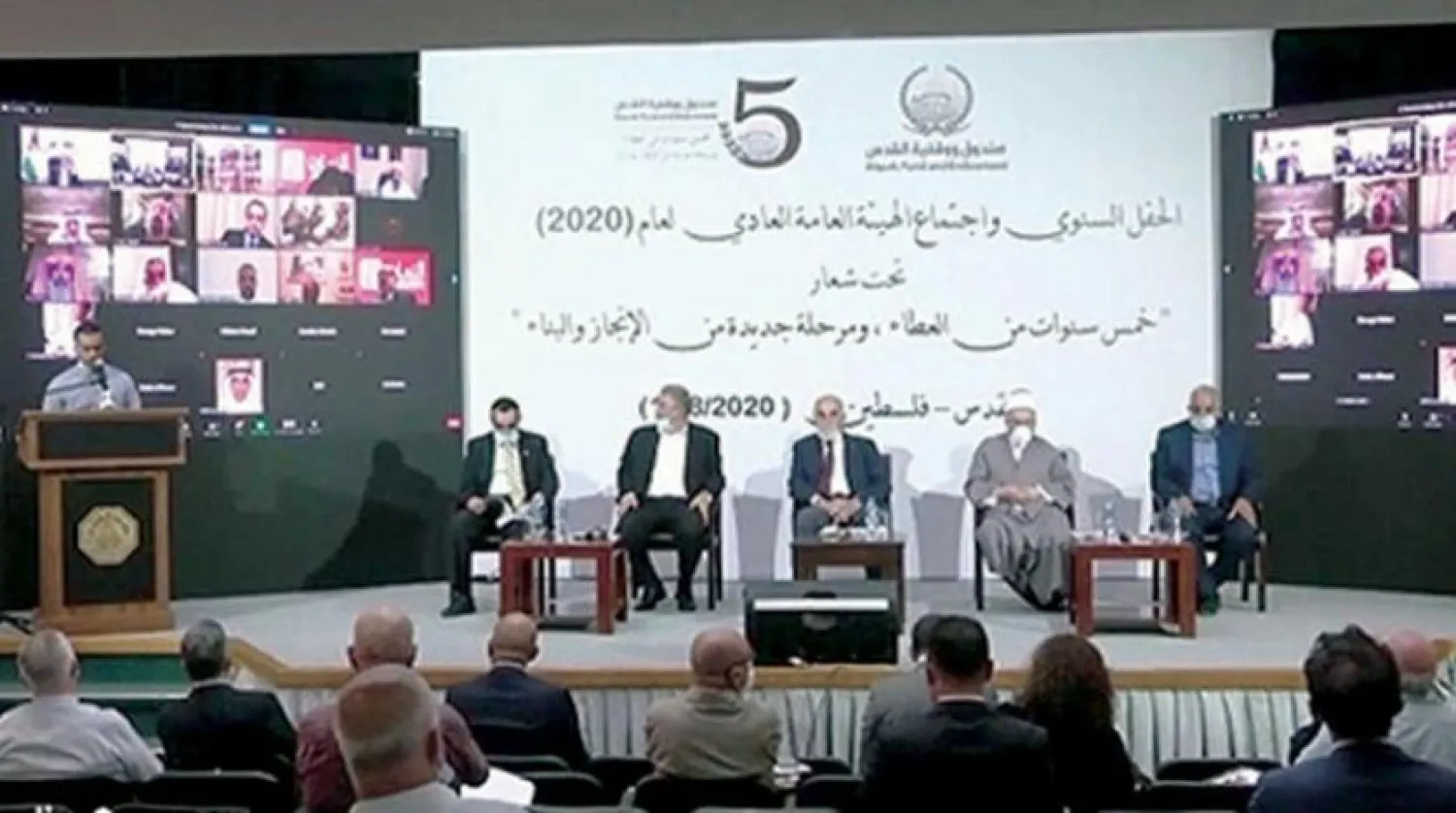Executive Director of AI Quds Fund and Endowment Taher Al Disi announced on Friday the establishment of the Al-Ihsan Waqf Investment Fund with an initial worth $100 million to foster economic and social development.
The announcement was made during the sixth General Assembly Meeting and the Annual Ceremony of the Al-Quds Fund and Al-Quds Waqf, held in the presence of Saudi Prince Turki Al-Faisal, member of the Board of Directors of Al-Quds Fund and Endowment, Dr. Bandar Hajjar, President of the Islamic Development Bank (IsDB), and Palestinian Prime Minister Mohammad Shtayyeh.
At the ceremony, the Islamic Development Bank signed with Palestinian investors the agreement to establish the Al-Ihsan Waqf for Al-Quds and the Al-Quds Empowerment Fund.
Hajjar commended the role of Saudi Arabia in launching numerous initiatives in favor of Palestine in general and Al-Quds in particular.
He said these initiatives include the establishment of the Al-Aqsa and Al-Quds Funds with financial resources amounting to $1 billion, whose management has been entrusted to the Islamic Bank.
The President added that, upon the initiative of the Kingdom, the Islamic Solidarity Fund for Development (ISFD) was established to fight poverty.
Hajjar said that in 2018 the Kingdom took the initiative to establish a $150 million Waqf fund to support Awqaf projects in Jerusalem, with the management of the fund being entrusted to the IsDB.
He added that two months ago, the Palestinian People Economic Empowerment Fund, which will work with the poor and unemployed youth, was launched with an initial capital of $500 million.
“The IsDB will contribute $100 million and the ISFD, the IsDB poverty alleviation arm, $50 million,” he said.
The Palestinian Prime Minister strongly commended the initiative of the Islamic Development Bank to establish a fund for the economic empowerment of the Palestinian people with a capital of $500 million.
“We must inform the Palestinian people that the fund has become a reality, and that this initiative launched by the IsDB President is part of the economic clusters plan, especially the cluster for the capital city of Al Quds,” Shtayyeh said.
He noted that IsDB has made a significant contribution in favor of Palestine to help it address the coronavirus pandemic, making contributions in Gaza and in Al-Quds, which solidifies the unity of the Palestinian territories, adding that the Bank has also made contributions to empowerment projects and to the reconstruction of Nahr al-Bared camp in Lebanon.
Prince Turki said the world today is in an exceptional state. “However those exceptions cannot erase a constant, which is our meeting today to discuss a main cause, the cause of Palestine,” he said.
The Prince spoke about the historic efforts exerted by Saudi Arabia, through its leadership and people, to support the Palestinian cause.
“We are witnessing a great event by signing with the Islamic Bank a fund for Jerusalem worth $100 million,” Turki said.









